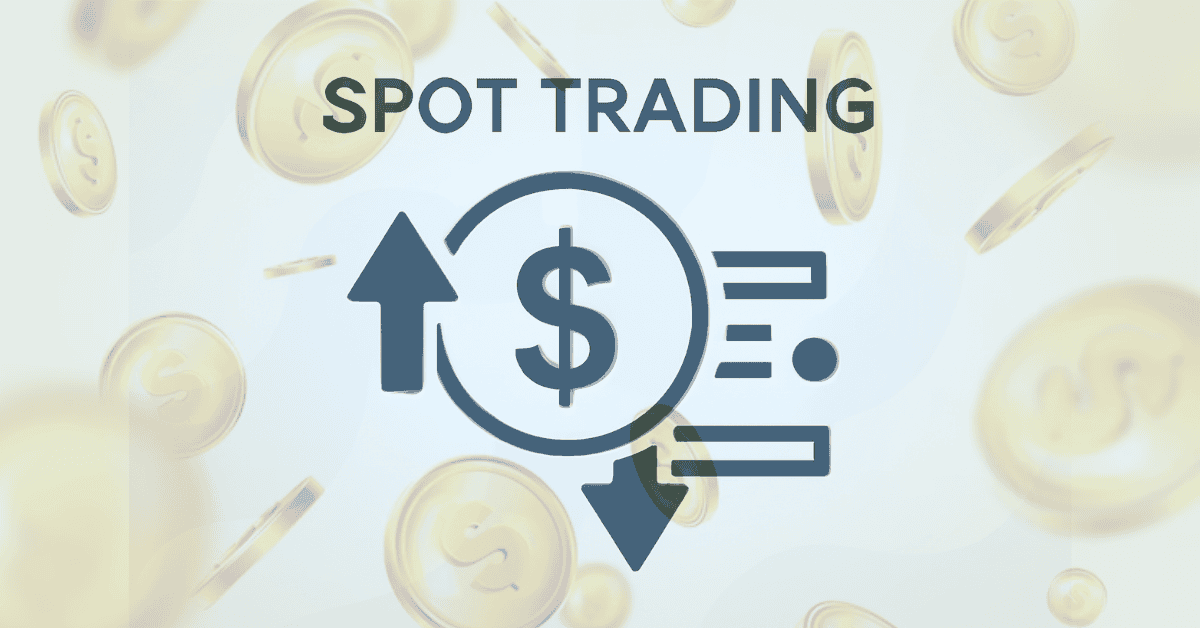
Spot Trading: How It Works and Its Benefits
1. What is a Spot Contract?
A spot contract is an agreement between a buyer and a seller to trade an asset at the current market price. Payment and asset transfer occur immediately or within a very short time. This type of contract is basic and commonly used in many financial markets, including commodities and cryptocurrency markets.
In a spot contract, the participants commit to carrying out the transaction at the current market price and completing the asset transfer once the trade is confirmed. The processing time for the transaction is very fast, usually within a few minutes or hours.
2. Spot Trading in the Crypto Market
Spot trading in crypto is essentially the implementation of spot contracts within the cryptocurrency environment. While it doesn't require complex legal contracts, spot trading still follows the principles of spot contracts, meaning payment and asset transfer are carried out immediately after the transaction is confirmed.
Key Similarities between Spot Contracts and Spot Trading:
-
Spot Price: Both use the current market price of the asset at the time of the trade.
-
Instant Payment: After the trade is confirmed, payment and asset transfer are executed almost instantly.
-
Fast Processing: The transaction occurs within a short time, unlike futures or options contracts, which take longer.
3. Key Terms in Spot Trading
Here are some important terms you should know when participating in spot trading:
-
Spot Price: The current market price of an asset.
-
Spot Market: The place where immediate buy/sell transactions of assets take place.
-
Limit Order: An order to buy or sell an asset at a predetermined price.
-
Market Order: An order to buy or sell immediately at the best available price.
-
Bid Price: The highest price a buyer is willing to pay.
-
Ask Price: The lowest price a seller is willing to accept.
-
Spread: The difference between the bid price and ask price.
-
Liquidity: The ability to buy or sell an asset quickly without significantly affecting the price.
-
Volume: The total amount of an asset traded over a specific period.
4. How Spot Contracts Work
4.1 In Traditional Markets
-
Contract Agreement: The buyer and seller agree to execute a trade at the current market price of the asset.
-
Payment and Transfer: After the contract is signed, the asset and payment are transferred immediately or within a short period.
4.2 In Cryptocurrency Markets
-
Placing an Order: The user selects the cryptocurrency they wish to buy or sell, enters the quantity, and executes the trade at the spot price.
-
Transaction Processing: The exchange's system automatically matches the buy and sell orders. The asset is immediately transferred from the seller to the buyer.
-
Receiving the Asset: After the transaction is complete, the cryptocurrency is transferred to the buyer's wallet.
5. Popular Spot Trading Forms in Crypto
-
CEX (Centralized Exchange): Platforms like Binance, Coinbase where users trade through an intermediary.
-
DEX (Decentralized Exchange): Direct transactions between users, without an intermediary.
-
P2P (Peer-to-Peer): A platform for direct cryptocurrency transactions between users.
-
OTC (Over-the-Counter): Off-exchange trading, suitable for large transactions without affecting market prices.
6. Differences Between Spot Contracts and Other Types of Contracts
6.1 Spot Contract vs. Futures Contract
-
Spot Contract: Transactions are executed immediately at the current price.
-
Futures Contract: Transactions are executed at a predetermined price at a future date.
6.2 Spot Contract vs. Swap Contract
-
Spot Contract: Assets are transferred immediately after the transaction.
-
Swap Contract: A mutual agreement to exchange assets or cash flows over a specified period.
6.3 Spot Contract vs. Options Contract
-
Spot Contract: A transaction that is executed immediately with an obligation to complete the trade.
-
Options Contract: Gives the buyer the right (but not the obligation) to buy or sell an asset at a set price in the future.